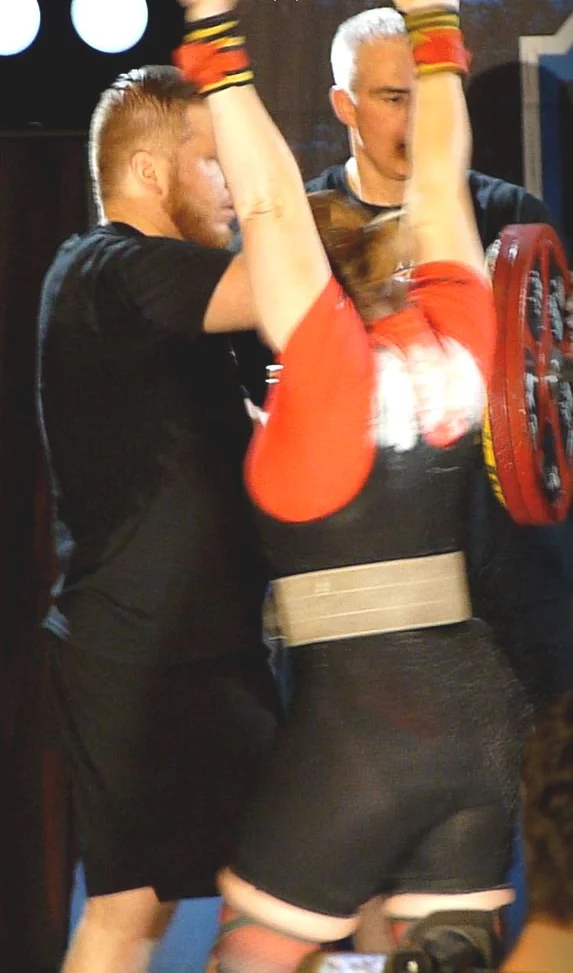Defeating Negative Self-Talk
I was really passionate about my track team in college. When I got there, we sucked. I wanted more teammates to play with, so I went on a mission to help my coach recruit. He would bring me new teammates, and I would work to create a team environment that was inviting, caring, and fun -- the kind of team that you want to be a part of because it makes the activity you love even more enjoyable.
We were kicking ass by my senior year. We had a nice, big stable of runners and a good vibe. But I recognized a vulnerability in myself and my teammates: We had a terrible tendency to beat ourselves up after any performance. If it was a good performance, there was criticism. If it was mediocre, there was self-loathing. If it was bad, someone would vanish under the stadium bleachers and would come out tearstained just before their next race. Why were we never excited about our improvements and PRs? Why was nothing ever good enough?
I had a sneaking suspicion that this mental state was not helping our performance, and by chance a friend of a friend knew a sport psychologist. I reached out to her and asked if she would be willing to do a session with my team. We talked briefly about my concerns, and I got the team together.
“Why was nothing ever good enough?”
I don’t remember much of the details of the session now. I do remember that there was honest discussion of negative self-talk and that most of us confessed we often relied on beating ourselves up as a way to drive ourselves to perform better, work harder, stay motivated. That approach was the only thing most of us knew with respect to motivation. I also remember that we took some convincing that it was not the most effective way to achieve our goals. The sport psychologist told us that no matter what, immediately after a performance we should not allow ourselves to critique the performance. Instead we needed to celebrate what we did right. The next day in practice, it was fine to think through what to improve, but right after an event, we needed to focus on what went well and not allow ourselves to be disparaging.
“But . . . I mean . . . even if I tell myself I did well, I’m not going to believe it,” one of my teammates countered.
“That’s ok,” she said. “It doesn’t matter that it won’t feel believable at first. You need to practice positive self-talk and keep doing it because eventually you will believe it.”
There was a soft “ooooohhhhh” across the room as if the veil had been lifted on a magical item. Young people, so malleable. That was probably the easiest and most immediately impactful session the sport psychologist had all month.
Her advice endured, too. We practiced it. We checked in with each other after a race to make sure we were saying the right things to ourselves. We helped each other to stay positive and celebrate success. We were a happier team and had the best outcomes in our team’s history: We finished second at the regional championship and qualified two people for Nationals, with a third just missing the cutoff.
“ You need to practice positive self-talk and keep doing it because eventually you will believe it.”
While this isn’t a powerlifting story, I think it is critical for women to embrace this concept in all areas of their lives where performance matters, be that in athletics or in their careers. That presentation you just gave for a bunch of executives or before a panel of teachers? Focus on what went well as you walk out the door afterward, and let your nerves stew on that. You can make some edits to the Powerpoint the next day. I don’t always succeed in executing positive self-talk after a performance 100 percent of the time, but I always come back to it.
Women, it’s so important to celebrate your performances and silence negative-self talk. And guess what? It takes a conscious effort and practice. Initially, you might not believe what you are telling yourself, and you might feel silly, but learning how to counter that negative voice in your head is a really important skill. It’s how you nurture your strengths and allow self-efficacy to grow.
It’s not magic. It’s practice. I think this lesson is much of the reason I can enjoy powerlifting so much. It feels good and each time I compete I can find positivity in a lift no matter how imperfect it was. There’s always room for improvement, but you won’t get there if you cannot recognize all of the things that you have done right.

